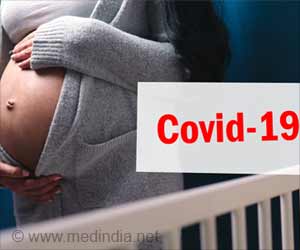Liver disease and transplant patients need targeted and sustained support during the COVID-19 pandemic. They are at a higher risk of developing severe COVID-19 infection.

‘Patients with non-alcoholic fatty liver disease (NAFLD), obesity, and cirrhosis seem to have poorer outcomes of COVID-19 infection. Health recommendations during COVID-19 include promoting telemedicine, prioritizing outpatient contacts, and avoiding nosocomial dissemination of the virus to patients and healthcare providers, while maintaining standard care for patients who require immediate medical attention.’
Read More..




Initially, age, hypertension, lung diseases, and cardiovascular diseases featured among the risk factors for severe COVID-19, but research now indicates that certain groups of liver patients are also at increased risk of developing a more severe course of COVID-19.Read More..
To tackle the many questions, EASL and the liver community is exploring how best to handle these challenges and treat affected patients, creating suitable resources for doctors and patients.
Two Position Papers have been published addressing these questions and providing recommendations: "Impact of COVID-19 on the care of patients with liver disease: EASL-ESCMID position paper after 6 months of the pandemic" was published in August 2020, serving as a follow-up to the original EASL-ESCMID Position Paper published in April 2020 (together referred to as EASL-ESCMID Position Papers). Both were published in the open-access EASL journal, JHEP Reports.
The EASL supported COVID-Hep registry was launched in March 2020 at the University of Oxford, UK. It serves to collect data on patients with liver disease at any stage or liver transplants who have developed laboratory-confirmed COVID-19.
To date, the registry has collected more than 1,200 submissions and has published important findings that helped clinicians to better understand the individual risk to patients, with different forms and stages of liver diseases, if they became infected with SARS-CoV-2.
Advertisement
Six months into the pandemic, in August 2020, the second EASL-ESCMID Position Paper was published to reassess the hepatology landscape. It provides a clearer picture on the evolution of the virus, how it affects liver and transplant patients, and who is most at risk.
Advertisement
While patients with liver disease appear not to be at increased risk of contracting SARS-CoV-2, those patients with non-alcoholic fatty liver disease (NAFLD), obesity, and cirrhosis seem to have poorer outcomes and fare less well. Of note, patients with auto-immune liver disease and chronic viral hepatitis are advised to continue with their treatments.
"Now that we have a much clearer picture on liver-related risk factors for severe COVID-19, we can better determine who needs closer attention, once infected. We also need to ensure that the pandemic will not have a long-lasting negative impact on the quality of liver patient care," said Prof. Thomas Berg, EASL Vice-Secretary General and Head of the Division of Hepatology, Department of Medicine II, Leipzig University Medical Center, Germany.
He continued: "The initial Position Paper recommendations remain valid, such as promoting telemedicine in the outpatient setting, prioritizing outpatient contacts, and avoiding nosocomial dissemination of the virus to patients and healthcare providers, while maintaining standard care for patients who require immediate medical attention."
"Clinicians and their institutions should strive to resume standard-of-care for patients with liver disease," said lead author and EASL Scientific Committee member, Dr Tobias Boettler, Department of Gastroenterology, Hepatology, Endocrinology and Infectious Diseases University Hospital Freiburg, Germany.
"Wherever possible, this should include embracing innovative technologies and methods developed during the pandemic, such as telemedicine and remote monitoring."
A joint initiative on the impact of COVID-19 on liver transplantation has been launched, together with a forthcoming survey focusing on its impact on the number of wait list candidates and number of patients being transplanted.
This joint initiative is taking place among EASL, the European Society for Organ Transplantation (ESOT), its division of ESOT, the European Liver and Intestine Transplant Association (ELITA), and the International Liver Transplantation Society (ILTS).
EASL is making the information on COVID-19 and the liver readily available too for patients. The EASL-ESCMID Position Paper has been adapted to communicate complex COVID-19 information and provide support to patients and their associations.
Two publications, a lay summary and a toolkit for liver patient organisations, were written as a collaboration among patient organisations, advisory groups, and EASL board members. Authors include Ms Martine Walmsley, EASL Policy and Public Health Committee member.
- Care of Patients with Rare Liver Diseases during the Covid-19 Pandemic (lay summary) - COVID-19 Toolkit for liver patient organisations
"Patient organisations are facing the challenge of having to communicate complex COVID-19 information quickly to patients, and to advocate for their healthcare needs in a rapidly changing climate, yet not all are resourced to do that," said Ms Walmsley, Chair of Trustees, PSC Support (for patients with primary sclerosing cholangitis), and PSC patient herself.
"Our Toolkit and Lay Summary reduce this burden by providing patient organisations with simple communication and advocacy tips, and an understandable summary of the latest expert thinking on caring for liver patients during COVID-19."
Source-Eurekalert















